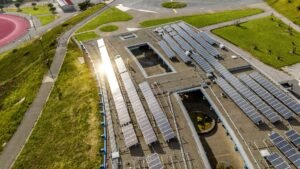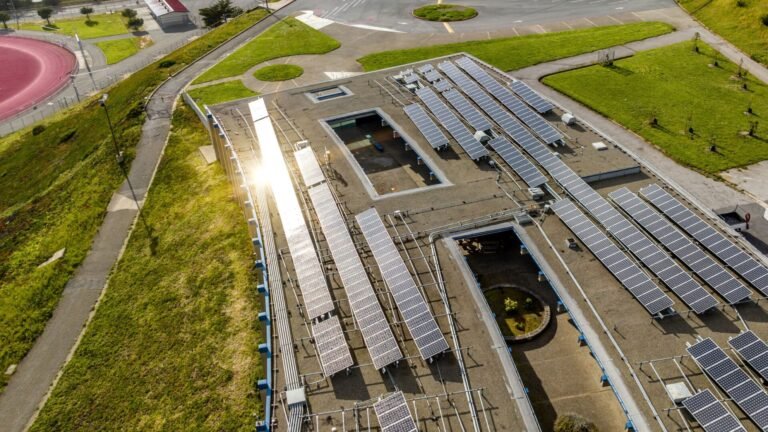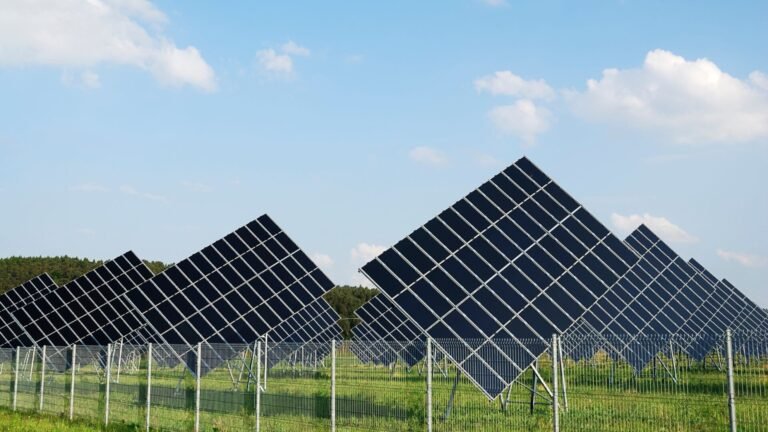Introduction
The fusion of Artificial Intelligence with solar energy systems is transforming the solar industry. AI’s dynamic capabilities in improving efficiency, predicting maintenance needs, and enhancing energy production mark a significant advancement in renewable energy technology.
1. Predictive Maintenance through AI
AI’s role in predictive maintenance is a major leap forward. By analyzing data from solar installations, AI algorithms can predict potential failures or maintenance needs. This proactive approach not only reduces downtime but also extends the life and efficiency of solar power systems.
2. Maximizing Energy Output with AI
AI excels in analyzing complex data to optimize solar energy production. It considers various factors like weather conditions, historical energy usage patterns, and even real-time data to adjust solar operations for peak performance. This level of optimization was unimaginable in the pre-AI era.
3. AI-Driven Design Innovations
AI is instrumental in designing more efficient solar panels and systems. By evaluating performance data and environmental factors, AI algorithms can suggest modifications in design that enhance solar energy capture and conversion, leading to groundbreaking advancements in solar technology.
4. Smart Grid Integration
Integrating solar energy into smart grids is another area where AI shines. It allows for more efficient energy distribution, balancing solar power supply with demand. This integration ensures a more reliable and stable energy grid, accommodating the variable nature of solar energy.
5. Automated Solar Farm Management
AI automates crucial operations in solar farms, from adjusting panel angles for optimal sun exposure to monitoring system health. This automation not only saves labor costs but also brings precision and efficiency to solar farm management.
6. Weather Prediction via Machine Learning
Machine learning, a key component of AI, is remarkably effective in weather forecasting, crucial for solar energy planning. More accurate weather predictions lead to better management and allocation of solar resources, maximizing energy production.
7. Overcoming Challenges and Embracing Future Opportunities
The integration of AI in solar is not without its challenges. High initial investment costs and data security issues are among the concerns. However, as AI technology evolves, it’s becoming more cost-effective and secure, paving the way for wider adoption in the solar sector.
8. AI in Solar Panel Manufacturing
AI also plays a pivotal role in solar panel manufacturing. From optimizing production lines to quality control, AI systems ensure higher standards and efficiency in manufacturing, leading to better quality solar panels at lower costs.
9. Enhancing Solar Battery Performance
AI extends its benefits to solar battery management as well. It optimizes charging and discharging cycles based on usage patterns and weather predictions, enhancing the efficiency and lifespan of solar batteries.
10. Personalizing Solar Energy Solutions
For commercial solar systems, AI offers personalized energy solutions. It analyzes the total energy needs and solar potential to design systems that are perfectly tailored to overall requirements.
11. Real-Time Monitoring and Control
AI enables real-time monitoring and control of solar systems. Users can receive instant updates about their system’s performance and remotely control various aspects, ensuring optimal operation and energy usage.
12. AI in Solar Research and Development
In research and development, AI accelerates the discovery of new solar technologies and materials. It can simulate and test countless scenarios, speeding up the innovation process in solar energy solutions.
13. The Role of AI in Solar Financing and Economics
AI also assists in the financial aspect of solar energy projects. It can analyze market trends, predict investment returns, and assess risk, helping investors and companies make more informed decisions about solar projects.
14. Future Trends: AI and IoT in Solar
The combination of AI with the Internet of Things (IoT) is set to create smarter, more interconnected solar systems. This integration promises even greater efficiencies and advancements in how we manage and utilize solar energy.
Conclusion
Artificial Intelligence is a game-changer in the solar industry, with its wide-ranging impacts from predictive maintenance to energy optimization, design innovation, and smart grid integration.
As AI continues to evolve, its role in solar energy is set to become even more pivotal, offering exciting possibilities for the future of renewable energy.






